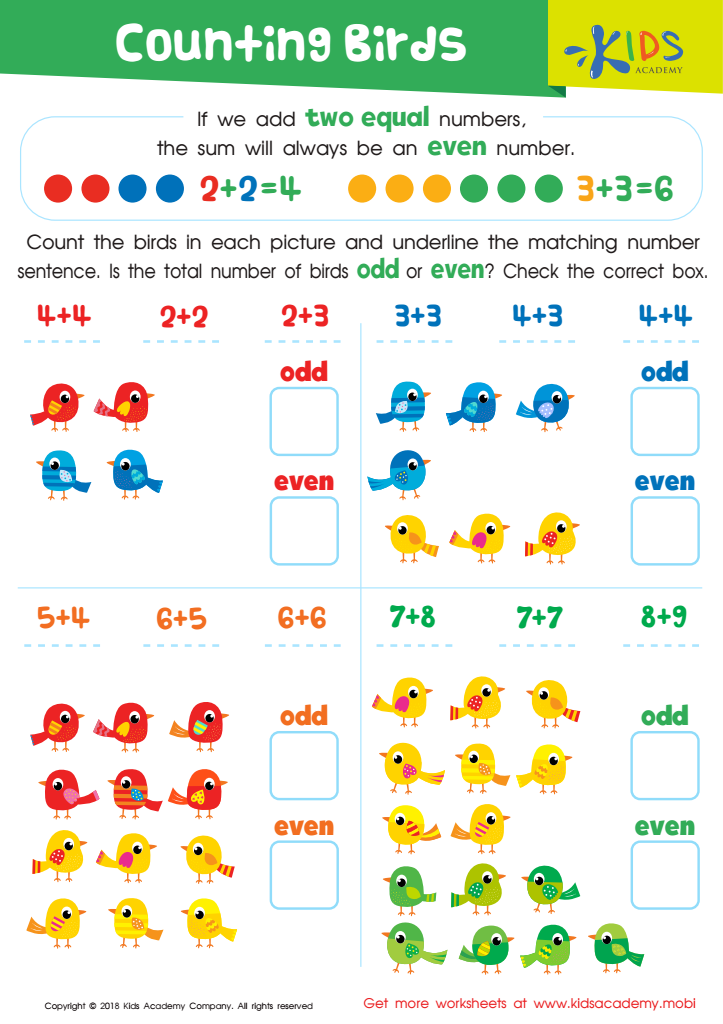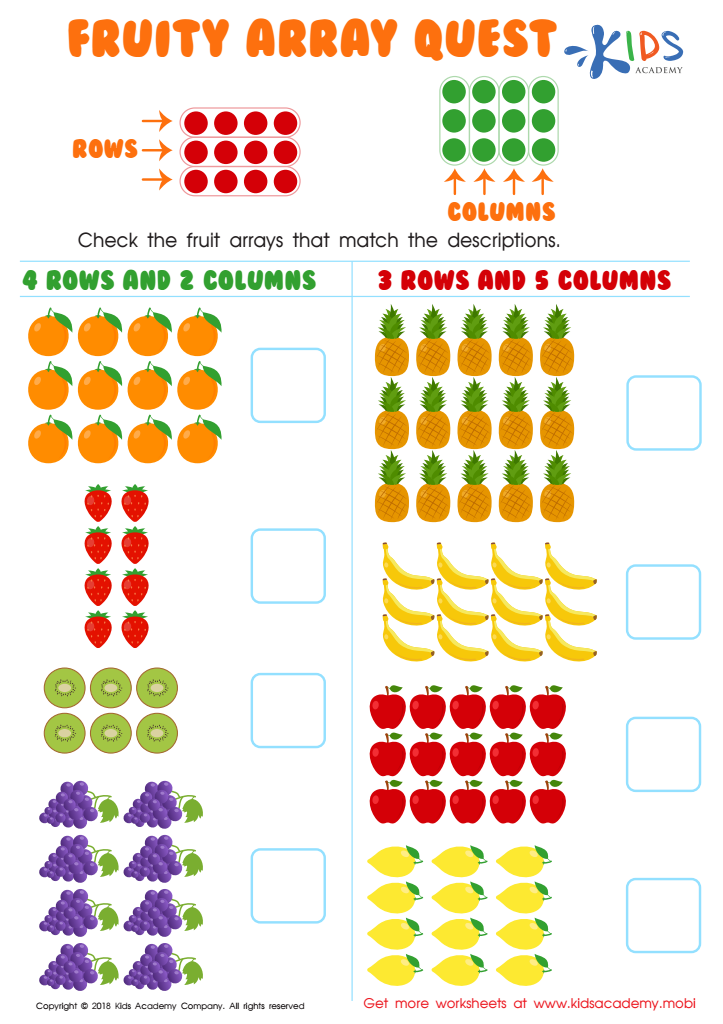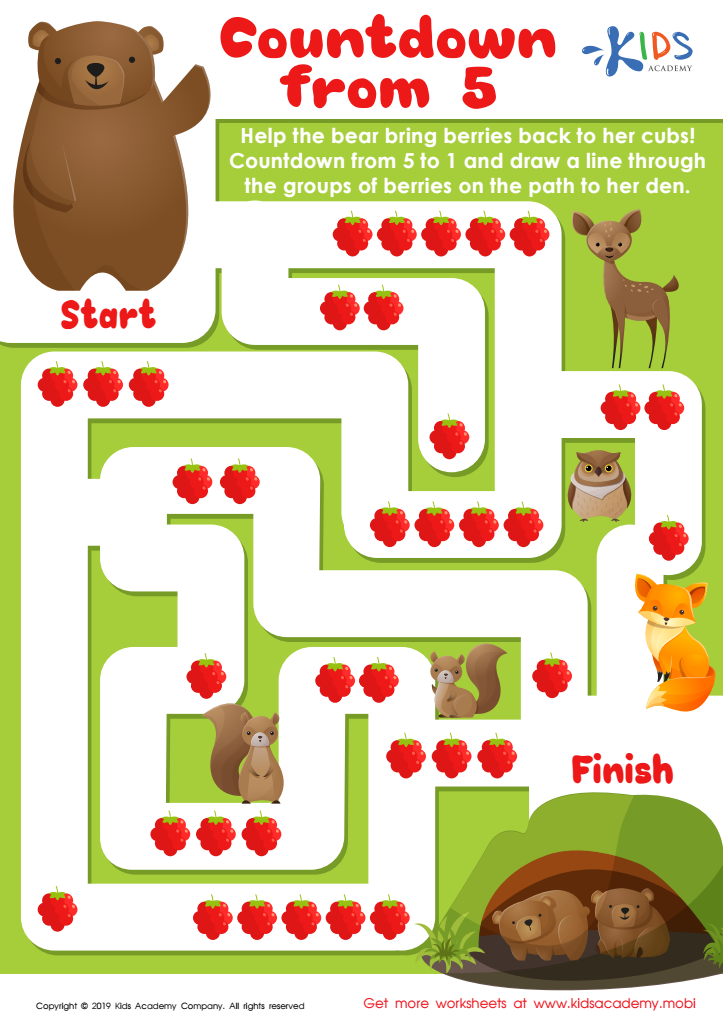Counting skills Easy Matching Worksheets for Ages 4-7
4 filtered results
-
From - To
Boost your child’s early math abilities with our “Counting Skills Easy Matching Worksheets” designed for ages 4-7. These engaging printables are perfect for young learners, helping them practice and strengthen their counting skills through fun and interactive matching exercises. Each worksheet features vibrant illustrations and simple activities that transform math practice into an enjoyable experience. Ideal for both classroom and home use, these expertly crafted resources emphasize the fundamentals of counting, number recognition, and cognitive development. Set your child on the path to math success with our enjoyable and educational matching worksheets. Start learning today!


Counting Birds Worksheet


Fruity Array Quest Worksheet


Colorful Arrays Bingo Worksheet


Countdown from 5 Worksheet
Counting skills and easy matching are foundational aspects of early childhood education that play a crucial role in cognitive development for children ages 4-7. Parents and teachers should care about these skills because they form the basis for more complex mathematical concepts. Mastery of counting provides children with an understanding of number sequences, basic arithmetic, and the concept of quantity, all of which are critical for tackling math problems as they advance academically.
Counting skills also enhance children's abilities to make comparisons, understand ratios, and recognize patterns, bolstering their logical reasoning abilities. Additionally, when children engage in easy matching activities, they learn to identify similarities and differences between objects, a skill that is beneficial not only for mathematics but also for reading when they later discern between letters and words.
These skills are also tied to day-to-day functions. Simple tasks like measuring ingredients for a recipe, sorting toys, or determining time intervals inherently involve counting and matching abilities. Strengthening these skills early on ensures children develop sharper problem-solving and critical-thinking capabilities which extend beyond the classroom. Moreover, early mastery can boost a child’s confidence and foster a positive attitude towards learning, encouraging academic curiosity and achievement in other subject areas as well. Therefore, emphasizing counting skills and simple matching sets the stage for lifelong learning and practical life skills.

 Assign to My Students
Assign to My Students
















